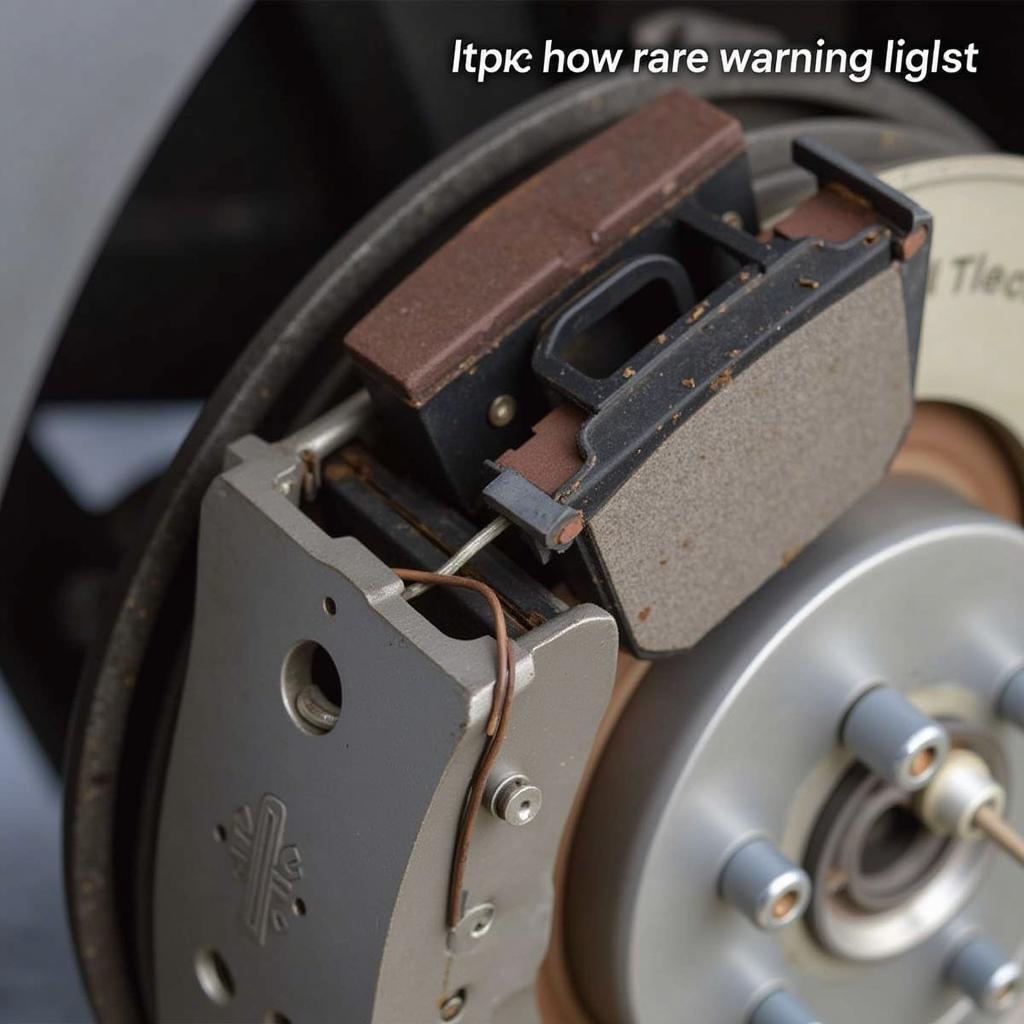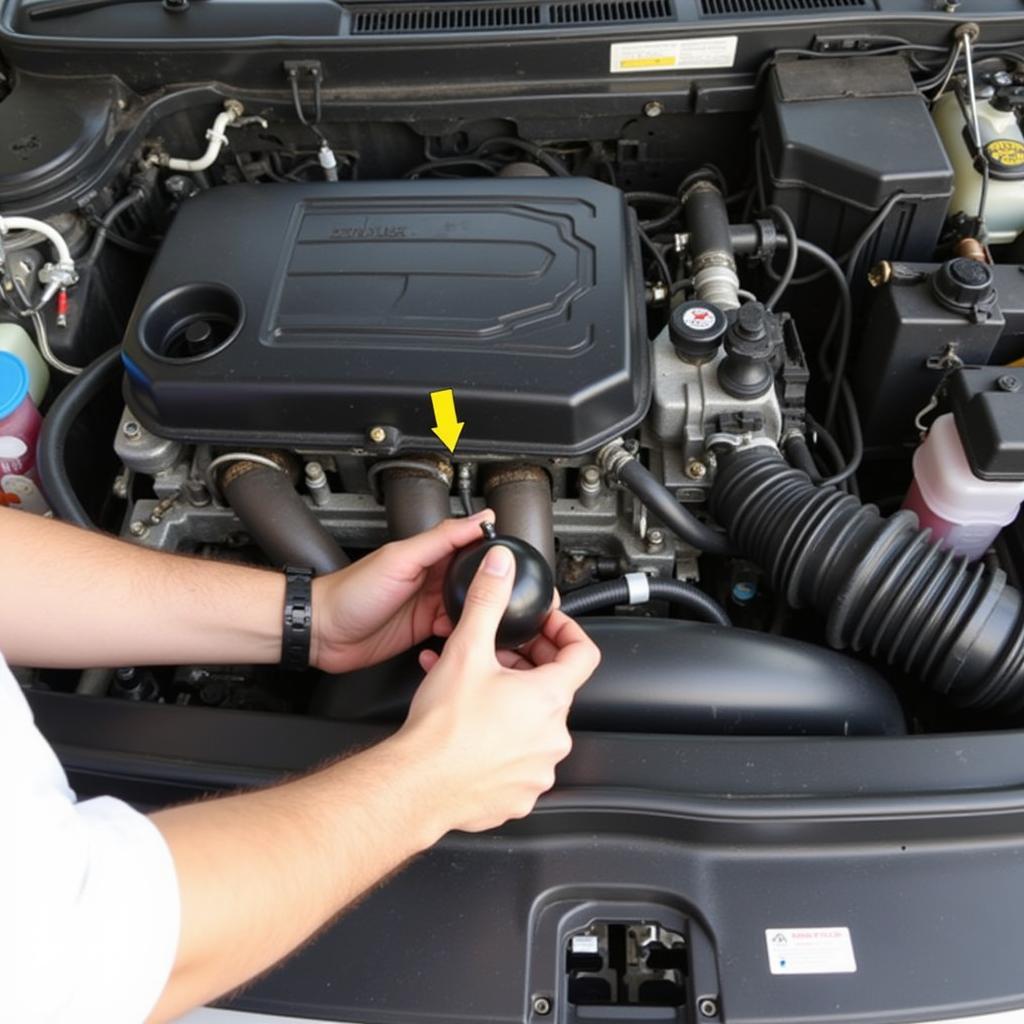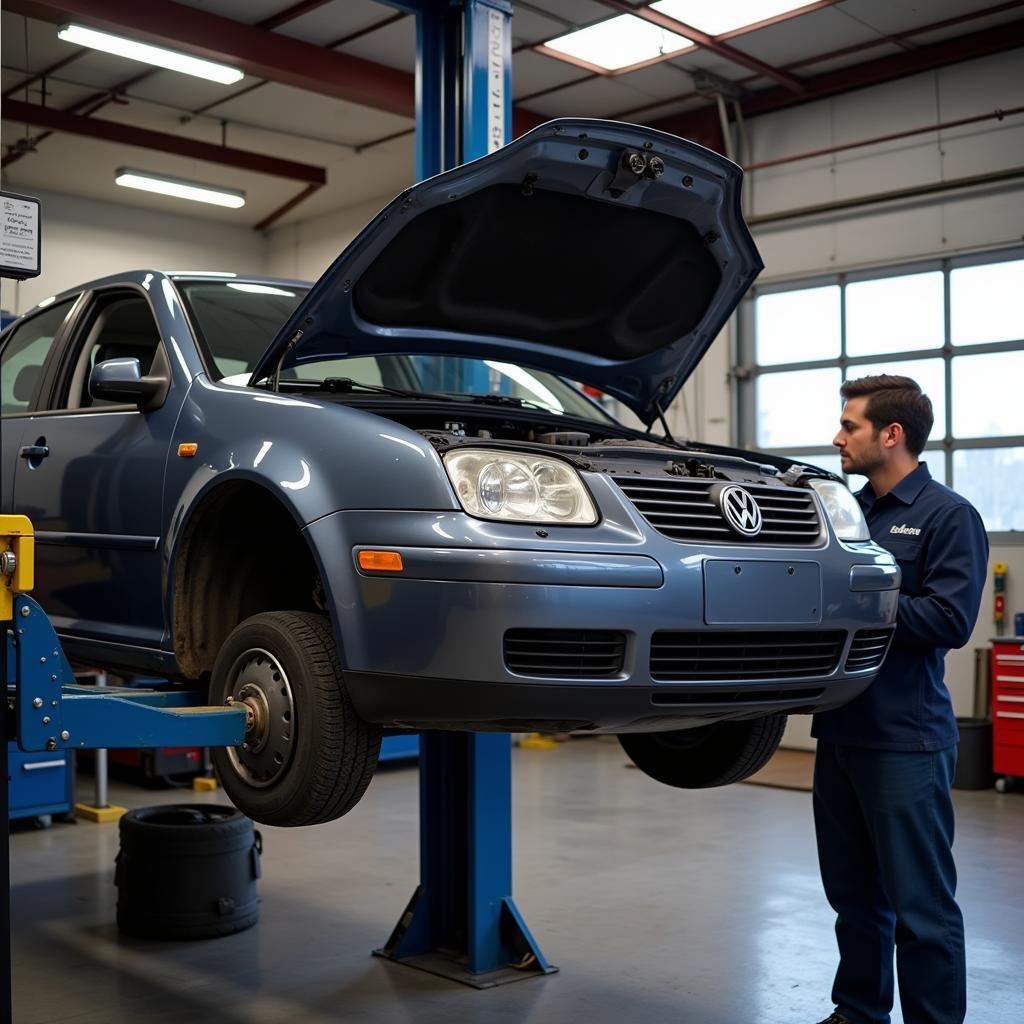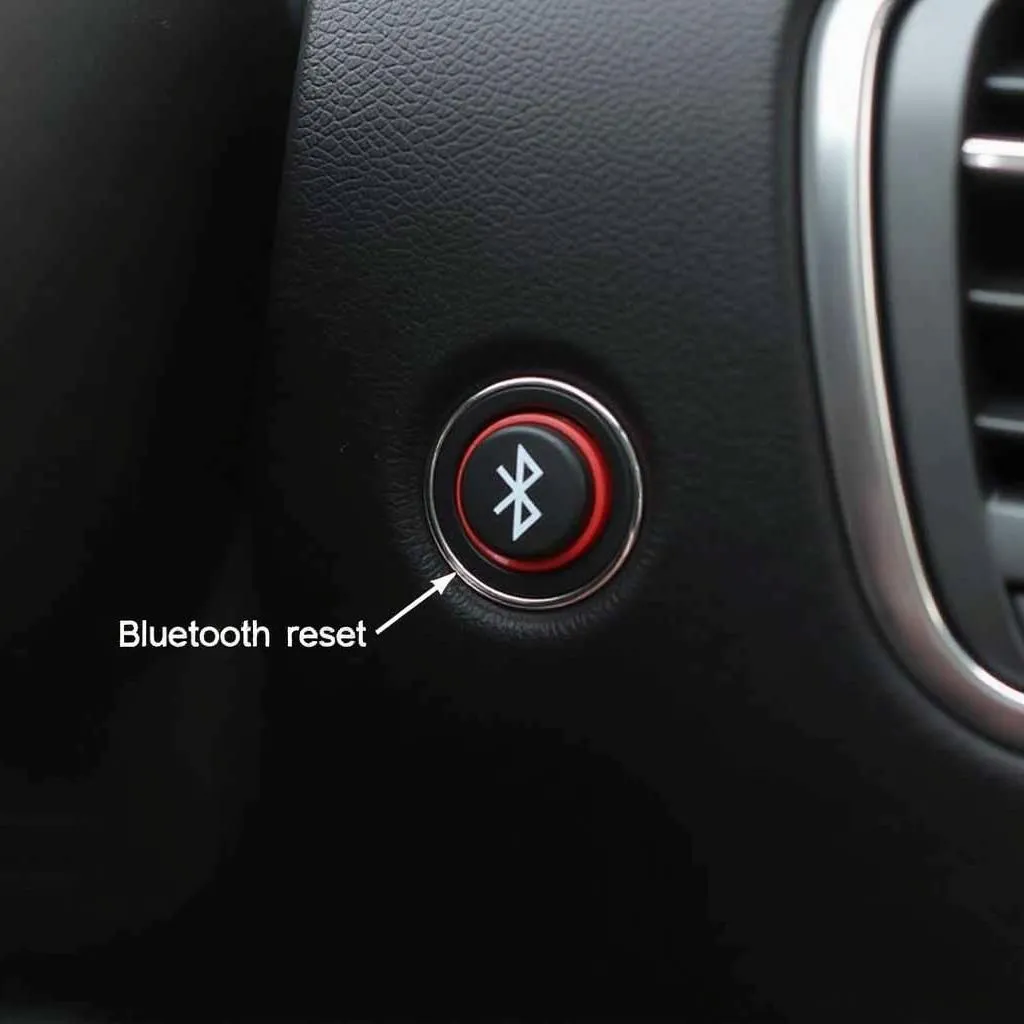The brake pad warning light on your 2003 VW Jetta is your car’s way of telling you that it might be time for a brake job. Ignoring this warning could lead to costly repairs down the line, not to mention compromising your safety on the road. This comprehensive guide will delve into the common causes of the brake pad warning light illuminating on a 2003 Volkswagen Jetta and how to address them.
Understanding Your VW Jetta’s Brake Pad Warning System
Your 2003 VW Jetta utilizes a straightforward brake pad wear sensor system. It consists of a sensor wire embedded within the brake pad material. As you use your brakes and the pads wear down, the sensor wire eventually makes contact with the brake rotor. This contact completes a circuit, triggering the brake pad warning light on your dashboard.
 Brake Pad Sensor VW Jetta
Brake Pad Sensor VW Jetta
Common Causes of a 2003 VW Jetta Brake Pad Warning Light
While worn brake pads are the most frequent culprit, several other potential causes could be at play:
1. Worn Brake Pads:
This is the most common reason for the warning light. Over time, your brake pads naturally wear down due to friction generated during braking.
2. Worn Brake Sensors:
The brake pad wear sensors themselves can also wear out or become damaged over time, leading to a false warning light.
3. Damaged Wiring:
The wiring connecting the brake pad sensors to the vehicle’s electrical system can become frayed, corroded, or damaged. This can interrupt the signal, causing the light to come on.
4. Faulty Brake Fluid Sensor:
While less common, a malfunctioning brake fluid level sensor can also trigger the brake pad warning light in some cases. This is often accompanied by a separate brake fluid warning light.
 Brake Fluid Reservoir in a 2003 VW Jetta
Brake Fluid Reservoir in a 2003 VW Jetta
Troubleshooting Your Brake Pad Warning Light
Important: If you’re not comfortable working on your vehicle, it’s best to take it to a qualified mechanic for diagnosis and repair.
1. Check the Brake Pads:
This is the first and easiest step. If you see less than 1/4 inch of brake pad material remaining, it’s time for new pads.
2. Inspect the Brake Pad Sensors:
Carefully examine the brake pad wear sensors for any signs of damage, such as fraying, breakage, or corrosion.
3. Check the Wiring:
Trace the wiring from the brake pad sensors to where it connects to the vehicle’s wiring harness, looking for any signs of damage or loose connections.
4. Inspect the Brake Fluid Level:
Ensure the brake fluid level in the reservoir is within the recommended range as indicated on the reservoir.
What to Do When the Brake Pad Warning Light Comes On
If the brake pad warning light comes on, don’t panic. Instead, follow these steps:
- Reduce your speed and pull over safely.
- Avoid sudden braking.
- Assess the situation. If you feel confident, you can perform a visual inspection of the brake pads and sensors as described above.
- Seek professional help if needed. If you’re unsure about anything or uncomfortable working on your vehicle, it’s always best to err on the side of caution and consult a qualified mechanic.
 VW Jetta on Lift for Brake Inspection
VW Jetta on Lift for Brake Inspection
Preventing Future Brake Pad Warning Light Issues
Here are some tips for proactive brake maintenance:
- Regular Brake Inspections: Have your brakes inspected by a qualified mechanic at least once a year or every 12,000 miles, whichever comes first.
- Listen for Noises: Pay attention to any unusual noises coming from your brakes, such as squeaking, grinding, or scraping.
- Don’t Ride Your Brakes: Avoid braking excessively or aggressively, as this can accelerate brake pad wear.
Conclusion
Addressing the brake pad warning light on your 2003 VW Jetta is crucial for both safety and maintaining the health of your vehicle. While worn brake pads are the most common cause, it’s essential to understand the other potential issues and address them accordingly. By following the troubleshooting tips and preventive measures outlined in this guide, you can ensure your VW Jetta’s braking system remains in optimal condition for miles to come.


